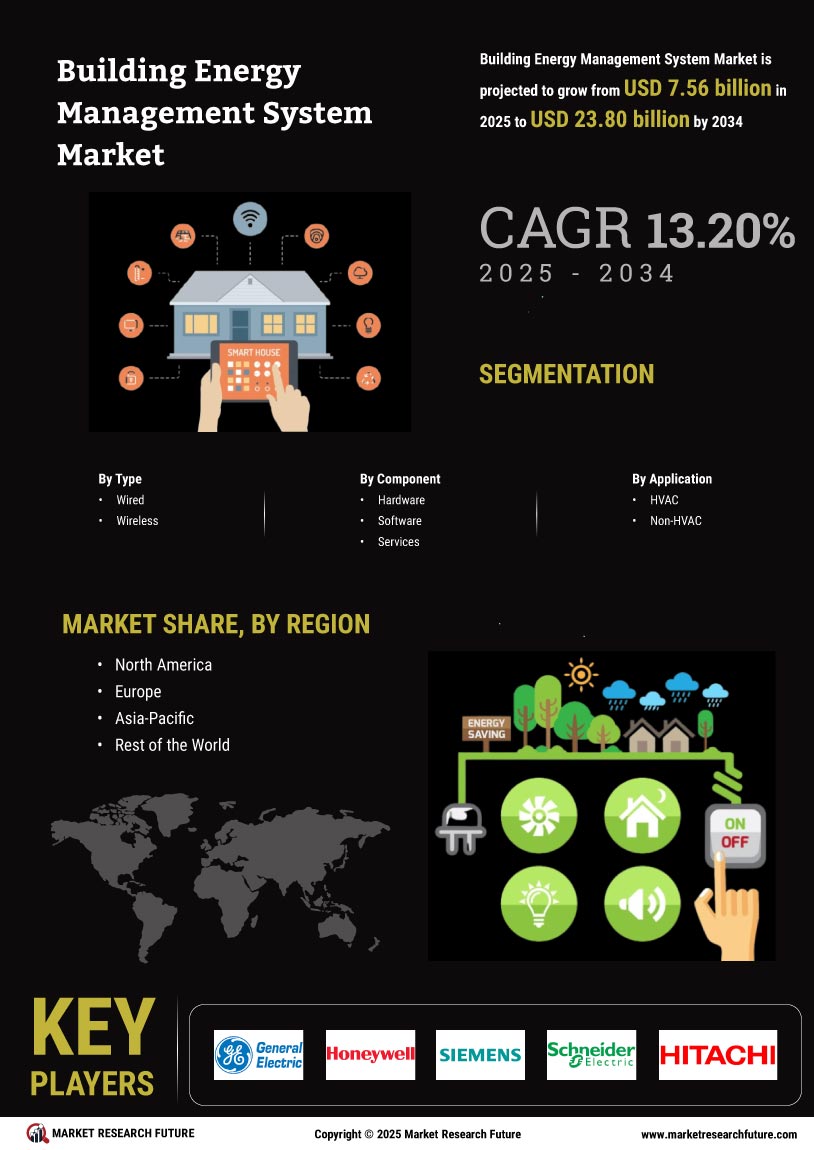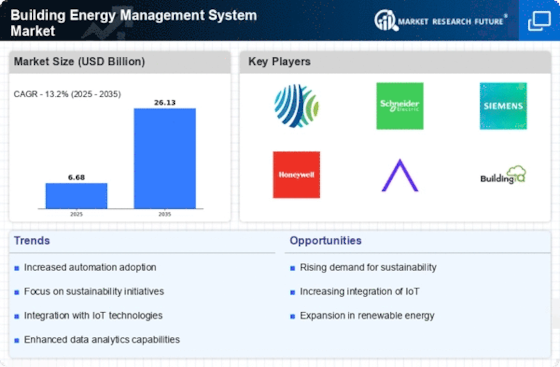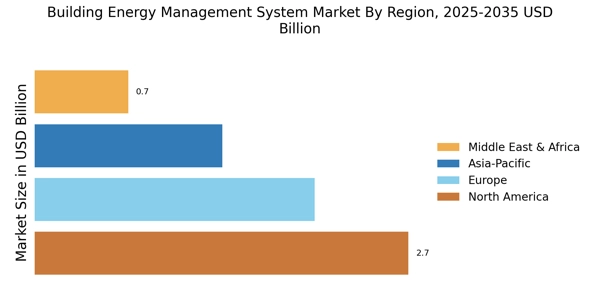Regulatory Compliance and Standards
The Building Energy Management System Market is increasingly influenced by stringent regulatory frameworks aimed at reducing energy consumption and greenhouse gas emissions. Governments worldwide are implementing policies that mandate energy efficiency standards for buildings, which drives the adoption of energy management systems. For instance, regulations such as the Energy Efficiency Directive in Europe and various state-level initiatives in the United States encourage building owners to invest in advanced energy management solutions. This regulatory push not only fosters compliance but also incentivizes the integration of innovative technologies that enhance energy efficiency. As a result, the Building Energy Management System Market is likely to witness a surge in demand as organizations strive to meet these evolving standards.
Increased Awareness of Sustainability
There is a growing awareness of sustainability and environmental responsibility among consumers and businesses alike, which significantly impacts the Building Energy Management System Market. Organizations are increasingly recognizing the importance of reducing their carbon footprint and enhancing their sustainability practices. This shift in mindset is driving the demand for energy management systems that not only optimize energy use but also contribute to broader sustainability goals. Companies that adopt these systems often report improved brand reputation and customer loyalty, as consumers prefer to engage with environmentally responsible businesses. Consequently, the Building Energy Management System Market is likely to experience heightened interest as sustainability becomes a core component of corporate strategy.
Integration of Smart Building Technologies
The integration of smart building technologies is transforming the Building Energy Management System Market. As buildings become more interconnected through the Internet of Things (IoT), energy management systems are evolving to incorporate smart sensors, automated controls, and data analytics. This integration allows for enhanced monitoring and management of energy consumption, leading to improved efficiency and reduced waste. The market for smart building technologies is expected to grow substantially, with projections indicating a compound annual growth rate of over 20% in the next few years. This trend suggests that the Building Energy Management System Market will increasingly leverage these technologies to create more responsive and adaptive energy management solutions.
Rising Energy Costs and Economic Pressures
The escalating costs of energy are a critical driver for the Building Energy Management System Market. As energy prices continue to rise, organizations are compelled to seek solutions that can mitigate these expenses. Energy management systems provide the tools necessary to monitor, analyze, and reduce energy consumption, ultimately leading to lower operational costs. In many regions, businesses report that energy expenditures account for a significant portion of their operating budgets, prompting a shift towards more efficient energy practices. This economic pressure is likely to propel the adoption of building energy management systems, as companies recognize the potential for substantial savings and improved financial performance within the Building Energy Management System Market.
Technological Advancements in Energy Management
Technological innovations play a pivotal role in shaping the Building Energy Management System Market. The advent of sophisticated software solutions, artificial intelligence, and machine learning algorithms enables real-time monitoring and analysis of energy consumption patterns. These advancements facilitate predictive maintenance and optimize energy usage, leading to substantial cost savings for organizations. According to recent estimates, the market for energy management software is projected to grow significantly, with a compound annual growth rate of over 15% in the coming years. This trend indicates a robust demand for advanced energy management systems that can seamlessly integrate with existing infrastructure, thereby enhancing operational efficiency within the Building Energy Management System Market.


















